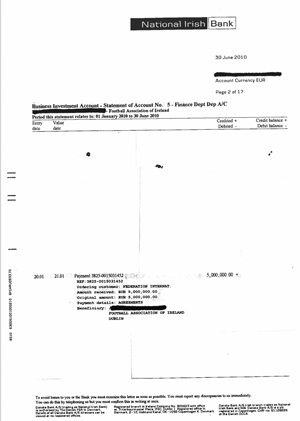The resignation of Sepp Blatter as FIFA President on 2 June was swiftly followed by a commitment to immediate governance reform, led by independent chair of FIFA’s audit and compliance committee Domenico Scala. Central to Scala’s mandate will be a review of financial transparency, as well as the proportional representation of influence within FIFA.
In 2015, FIFA member federations received a US$250,000 annual grant and a one-time US$500,000 bonus from profits linked to the 2014 World Cup. Associations can also apply for FIFA Goal Programme money as well as one-time payments or “loans” in the millions to associations and confederations, as circumstances allow.
Most of the current allegations of corruption against FIFA argue that these payments are discretionary, ad-hoc and hardly traceable, but are used to maximise the number of votes for certain elections and decisions by positively discriminating in favour of the many smaller and poorer member federations.
Strict anti-corruption ideas could call for a formula that – for example – defines a fixed sum for each member, plus a variable payment according to membership numbers, performance at World Cups and so on. FIFA would be bound to a zero-discretion policy, comparable to the Odyssian approach of prevention against the temptation of the sirens.
Beside the possibility of redefining the algorithm from time to time, this approach would imply the end of sport politics as a decision-based social process based on a possibly time-varying weighting of the relative importance of different targets and criteria. Algorithms are intrinsically backward-looking, leaving less room for politics in the sense of a future-oriented strategy. For example, it could be argued by less privileged FIFA member countries that an algorithm that is based on the past athletic performance will cement a historically grown hegemony of some few privileged nations.
In principle, the known FIFA payment structures, favouring poorer members, resemble those of other sporting institutions that nevertheless do not suffer from allegations of corruption. One of the major differences between FIFA and other federations lies in the degree of traceability of their payments to its members. FIFA and other sporting federations should as a fixed rule make public their payments and the underlying decision criteria. Such a strategy of transparency will not calm all allegations of unfair or biased financial policies, but will help to find a balance between algorithms and politics.
Carousel image: Flickr, pictures of money

















 Connect with us on Facebook
Connect with us on Facebook Follow us on Twitter
Follow us on Twitter